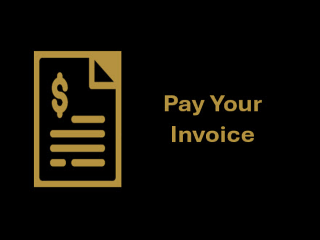

WAVE FAMILY LAW FRIDAY'S 07/08/2022
FEATURING ATTORNEY JOHN SCHMIDT
John Schmidt - Aug. 5, 2022
JOHN RAMSEY: I love this show because we have experts on. And today is Family Law Friday. My expert is attorney John Schmidt, who joins me now. Welcome back to the show, John. Today, tough topic, but something you — that you deal with often, divorce.
JOHN SCHMIDT: It is. Thanks, John. You know, we — we do about 50 percent of our practice in divorce.
JOHN RAMSEY: All right. So let’s talk about the two scenarios. Whenever I think about divorce, I think of — okay. I think of uncontested. They seem to agree. Everyone’s okay about how things’ll go. And then we have, when it gets a little contentious —
JOHN SCHMIDT: That’s right.
JOHN RAMSEY: I guess you call that contested.
JOHN SCHMIDT: That’s correct.
JOHN RAMSEY: So — so tell me —
JOHN SCHMIDT: Yeah.
JOHN RAMSEY: — about the difference in those two. I’m assuming uncontested, a lot easier.
JOHN SCHMIDT: A lot easier, a lot cheaper, and and — and a lot less stressful for everybody, because it’s always stressful when you’re suing somebody. The process of divorce itself is stressful. And so, if you do uncontested, if there are children, the clock starts when the person — the other person enters their appearance. So basically, we file the initial paperwork, and then 60 days later, one party comes in, can sign the paperwork, and as long as you’ve done the required classes, we can file it. You can be divorced in, you know, a short period of time. So it’s up to the Court after that, but it — 60, 70, 80 days, something like that, from the time we file, and the person enters their appearance. Contested divorce is different. So contested divorce is where the — there’s a fight. And that process can take as long as the parties want to make it — make it last. But I like to try to bring things home quickly, and — and you know, the — because the — the longer you drag it out, the more negative things you say about each other, and the uglier it gets, and the more you — you spend on the process. I — I just don’t think it puts clients in a healthy spot. So zealously fight for our clients, try to get them everything they’re entitled to, give them the best advice that we can possibly give them, and — and hit it hard, and fast, and solve the problem —
JOHN RAMSEY: There we go.
JOHN SCHMIDT: — as quickly as possible. And that’s what we like to do. We — I come out of consulting, where we focus on results, and I — I like – – I like to focus on results. I like to get it done and — and try to move the case on.
JOHN RAMSEY: Yeah. And let — let’s be clear. You like positive outcomes for your client.
JOHN SCHMIDT: For my client.
JOHN RAMSEY: You’re — you’re there to fight for your client, so if you’re going —
JOHN SCHMIDT: Absolutely.
JOHN RAMSEY: — through a divorce or perhaps you see one on the horizon, it’s important to give him a call, attorney John Schmidt. Okay. Let’s talk about a — a scenario here I’m going to throw at you because this happened to me. I had a friend of mine call me. He said, “I’ve been served divorce papers.” The guy was devastated. He did not see it coming. He — you know, says, “What — what do you think I should do? I’m not an attorney.” You know what he should do. What does he do?
JOHN SCHMIDT: Call us.
JOHN RAMSEY: Now.
JOHN SCHMIDT: Now. Oh, yeah, call us now. You only have 20 days to respond and — and file an answer. And if you — if you tinker with it or you let your rights sit there, you know, you can get a default judgment against you if you’re not careful. So it’s important to call an attorney and — and get the process started where you can file your answer.
JOHN RAMSEY: Okay. Now, you — you mentioned — you said, you know, “Everything that my — my client is entitled to, I’m going to fight for that.” Let’s talk about something that — that’s a little bit more — I — I don’t want to say vague. Let’s just say harder to figure out: Kids, when kids are involved, okay, how does that work? I know it’s got to complicate matters.
JOHN SCHMIDT: It does. It does. There’s — you know, the things that kind of complicate things — kids, pets, family heirlooms all having emotional ties to them and complicate the process. But you know, when kids are involved, there’s a presumption of joint custody and equal parenting time. So that’s — that’s a change in recent years, which is good. Dads and moms now are recognized as being equally important to the child. And it can be overcome, but it’s there. And so, you know, if you’re going through a divorce, and you don’t have children, and you — you’ve been separated for the requisite amount of time, I can get you divorced very, very quickly. But if you have children, there’s that — there’s that 60 day clock that starts from the time they enter their appearance and/or get served, and we go from there. So kids can complicate things.
JOHN RAMSEY: Yeah.
JOHN SCHMIDT: And of course, child support’s involved —
JOHN RAMSEY: Sure.
JOHN SCHMIDT: — at that point, and everything else, so…
JOHN RAMSEY: So is there anything that — that is — that is cut and dry in the State of Kentucky as far as alimony, maintenance, child support? Is it cut and dry, or is it all up to the judge?
JOHN SCHMIDT: No. So spousal support, maintenance, alimony, that’s discretionary and — and fact-based, so that’s case-by-case. Child support is statutory. So the — the real trick with child support is an accurate picture of income. And if you have an accurate picture of everybody’s income, you know whether there’s daycare or not daycare, you know who’s paying medicals or not paying medicals for the children. If all the information that we need — need that goes into the calculation of child support is there, that’s pretty simple. That’s pretty cut and dry. It can be agreed upon by the parties, and you can have a deviation from it, and parties frequently do. You know, in my personal case, you know, my ex-wife and I said, “We’ll just split things down the middle,” and you know — roughly equivalent income — “But we’re not going to nickel and dime each other.” And we’ve been able to work together in these last — what, ten years, 11 years to do that, and it — it’s been very successful. So it — it’s your life.
JOHN RAMSEY: Yeah.
JOHN SCHMIDT: Right?
JOHN RAMSEY: Yeah.
JOHN SCHMIDT: So you can control a lot of it, but where you feel like maybe it’s — it’s beyond your control or you’re not sure what to do, and you need guidance, then we can help.
JOHN RAMSEY: Off — off script here, I have to ask you. You mentioned you’ve been through a divorce. Did that process help you understand a little bit more about your clients and what they go through? Because I — I —
JOHN SCHMIDT: Yes.
JOHN RAMSEY: — think it’s one thing to know the law, and you obviously know that, but did that help you a little bit? Of, like, “Hey, this is an emotional process, too.”
JOHN SCHMIDT: It helped me a lot. You know, it — you can sympathize, but empathy only comes with experience. And so, you know, if you’ve walked a mile in the shoes, then you have that shared experience, and you can empathize. So I have a lot of empathy for people on this because I’ve been through it, not just once, but twice, so — yeah, I know.
JOHN RAMSEY: Okay.
JOHN SCHMIDT: We didn’t talk about that, but —
JOHN RAMSEY: That’s okay.
JOHN SCHMIDT: — the —
JOHN RAMSEY: Experience counts.
JOHN SCHMIDT: — experience counts. So I have — I have — I have a lot of experience, personally, in divorce and then, of course, I do it for a living, so, yeah. So it — it — it is a traumatic thing, and it’s kind of difficult —
JOHN RAMSEY: Okay.
JOHN SCHMIDT: — for anybody that goes through Yeah.
JOHN RAMSEY: Well, let’s talk about the process, then, as far as getting ahold of John Schmidt. As I said, very knowledgeable about the law, very — he’s a — he’s a family law attorney. This is what — this is his field of expertise, so if someone says, “Hey, it’s coming, I need to get my ducks in a row,” you could probably give them basically a checklist. “Here’s what you need. Before you come see me, let’s get it together,” right?
JOHN SCHMIDT: Yeah. We — we will send a questionnaire to people where they can give us some information, and they can fill it out online. And then when they show up, we can get the process started to — to do whatever it is they need to do. So if it’s uncontested, we can — we can square that away and solve their problem. If it’s contested, we can get the ball rolling and work hard to solve their problem. I have a real push, and I like to see results, positive results, so I like to keep the ball rolling, and I like to see things get resolved in as positive way as possible, solving their problem as — as quickly and effectively as possible. And — and by doing that, minimizing their legal fees, too.
JOHN RAMSEY: Yes.
JOHN SCHMIDT: So you know — now, people sometimes want to pay for the fight, and they’re entitled to pay for the — just pay to fight. But if that’s not their bag, that’s not their thing they’re into, you know, we get done.
JOHN RAMSEY: There we go.
JOHN SCHMIDT: Right? We can solve the problems, and that’s really what we try to do, is we try to really get in there and solve the problems for people and — and let them move on with their lives.
JOHN RAMSEY: All right. John, thank you very much again.
JOHN SCHMIDT: Thanks, John.
JOHN RAMSEY: Family Law Friday, attorney
John Schmidt. If you have a family issue, then give him a call today. The number is on the screen.
(END OF RECORDING)
CERTIFICATE OF REPORTERCOMMONWEALTH OF KENTUCKY AT LARGE
I do hereby certify that the witness in the foregoing transcript was taken on the date, and at the time and place set out on the Title page hereof, by me after first being duly sworn to testify the truth, the whole truth, and nothing but the truth; and that the said matter was recorded digitally by me and then reduced to typewritten form under my direction, and constitutes a true record of the transcript as taken, all to the best of my skill and ability. I certify that I am not a relative or employee of either counsel and that I am in no way interested financially, directly or indirectly, in this action.



